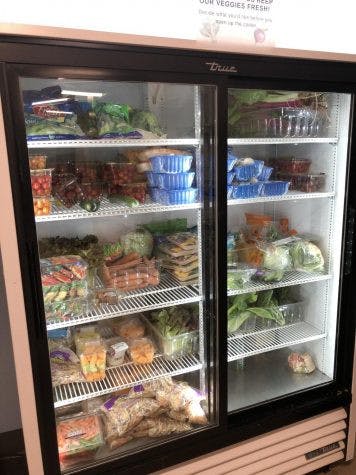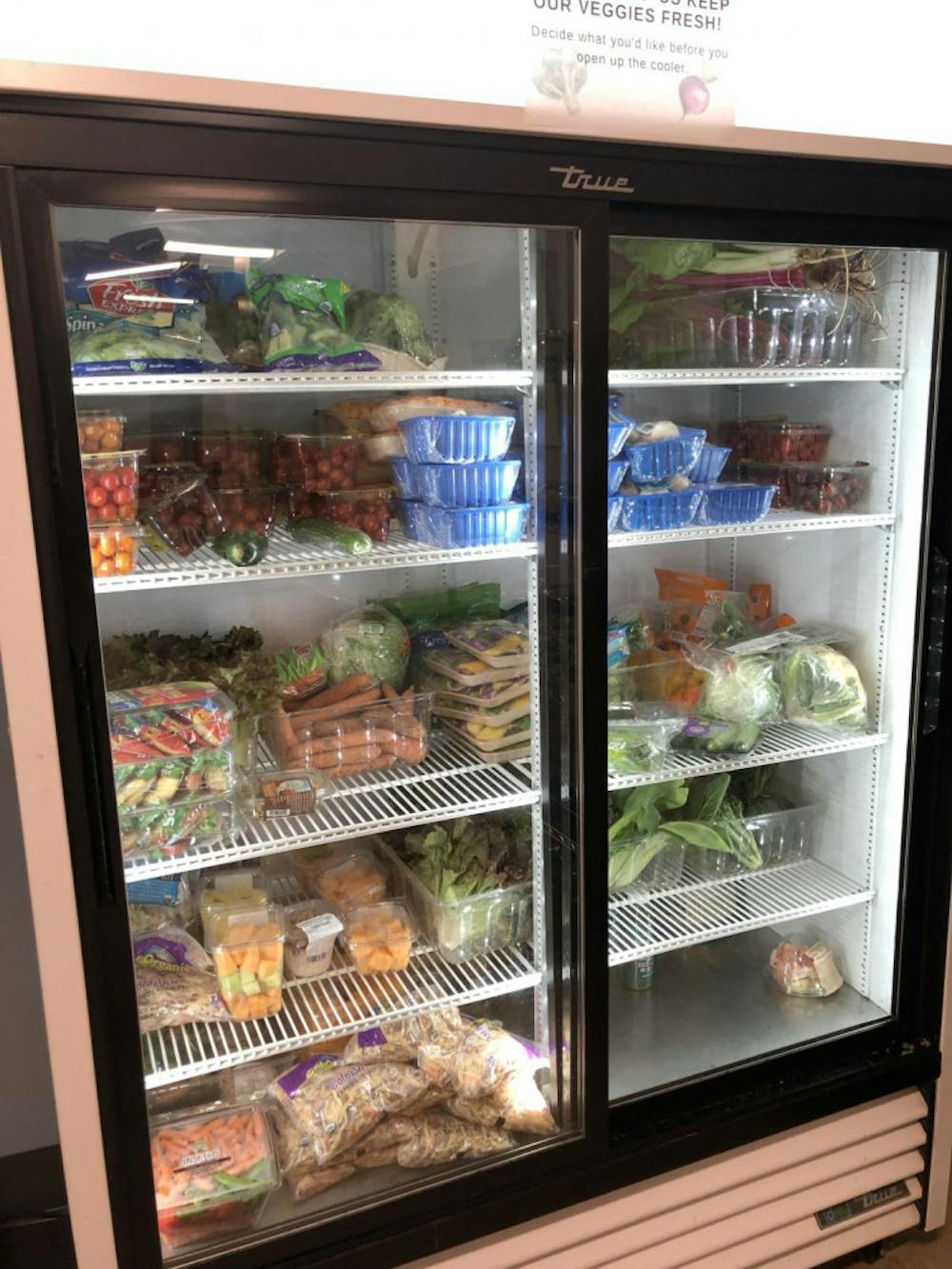For many Middlebury students, the summer provides a time for deeper immersion into the Middlebury and greater Vermont community. Leila Markosian ’21 and Imran Ganda ’20 each spent their summers in Middlebury and spoke to the Campus about their experiences. Markosian interned at The New England Review, a literary magazine published by the college. Ganda completed an internship with Middlebury’s Privilege and Poverty program, which connects students with vulnerable populations in Addison County and nationwide.
MIDDLEBURY CAMPUS: Who did you work for this summer?
LEILA MARKOSIAN: I worked for the New England Review, supervised by Carolyn Kuebler, Marcy Pomerance and Eli Sutton.
IMRAN GANDA: I worked for a nonprofit, social services organization called HOPE, which stands for Helping Overcome Poverty’s Effects. The organization provides numerous services for low-income residents and families in Addison County. It’s best known for its food surplus area and food shelf, providing fresh produce, bread, desserts, meats, pastas and other goods for no cost, thanks to donations from Hannaford, Shaw’s and other community members and agencies.
There’s a resale store as well that helps clients secure clothes for kids, uniform clothing, appliances, and other household items through HOPE vouchers. They also work with people struggling with chronic homelessness to secure housing, helping pay back rent and bills, as well as working with other local agencies to provide residents with assistance, [working with organizations such as] WomenSafe to help a client relocate for safety reasons, by securing a room at the Sugarhouse Motel.
MC: What was your role and your day-to-day schedule?
LM: I was one of two summer interns, and my tasks for NER varied from day to day. I would update their website with posts announcing new books by authors previously published in the journal; I learned how to format short stories and poems published online; I read fiction submissions and discussed these stories with other readers; and I worked with my amazing fellow intern to produce two episodes of the NER Out Loud Podcast.
IG: There were a variety of tasks that kept me busy this summer. I mainly worked in the front office where I greeted clients, tracked the number of clients coming in to access the food surplus shelf via Excel, help schedule appointments with caseworkers, secure clothing vouchers for the resale store and guiding them through the food shelf. I also kept track of incoming food donations from different agencies and individuals.

One of Imran Ganda ’20’s responsibilities during his internship at Helping Overcome Poverty’s Effects (HOPE) was helping with the organization’s food shelf.
MC: What were some of the biggest takeaways from your experience?
LM: One of my biggest takeaways from this internship was how vast the world of literary journalism is. Between all of the writers, editors, publishers, and readers, there is a massive network of people working to cultivate a true love of literature that I definitely took for granted before this summer. It was exciting to see how many people were invested not only in NER, but also in other magazines as well as the individual careers of authors.
IG: As someone who wants to end up working with domestic policy at some point, this internship was a great resource for insight. The way I see it, policy centers and think tanks often times create much of the rules and regulations that get rolled out to agencies like HOPE to provide services to people. Having seen the way things could play out on the ground, I felt like I was working backwards now that I’m equipped with a better understanding of how the agencies that implement policies—which are more often than not created with specific goals in mind—actually function.
Social work is tough, and the people I worked with were not fairly compensated, in my opinion. The internship exposed me to the emotional weight of social service jobs that ultimately seem never-ending. The people I worked with spoke about thinking about clients and certain cases while they were off duty or even on vacation. It’s intimate work that can, to an extent, determine how members of society will blossom or degenerate. Working with low-income communities in particular can be more difficult given the complex nature of poverty. It’s more than just financial capabilities. Whether people came in looking for my boss Kerry to vent to, or even catching me on the ACTR for a chat, an additional component to poverty in rural communities is loneliness.
MC: What were some of the greatest challenges you faced?
LM: One of the greatest challenges I faced was learning how to use podcast and website technology that I’d never used before. This summer was full of trial and error, which was frustrating at times but ultimately allowed me to grow more comfortable with software I hope to use in the future.
IM: There were times where I knew I could have spoken up in a situation but didn’t know how to because we were in the confines of an office space. This was my first internship and dealing with negative situations—especially those where someone needs to be defended—was a learning curve. I understood that there was a professional and more formal way of addressing certain incidences, but I felt I had yet to learn how to go about them. It’s funny because there were workshops in the spring that the Privilege and Poverty cohort held and we did a bias response training one day that required individuals to speak on ways they’d go about handling a difficult scenario. It was the most relevant component to the workshop experience as I found myself in situations where something ignorant was blurted and I was baffled.
MC: What was your favorite and least favorite aspect of the job?
LM: My favorite part of my internship was reading submissions. Even if a story wasn’t going to make it to the publishing stage, it felt so valuable to see what topics, styles, and themes were on contemporary writers’ minds. My least favorite aspect of the job was, unsurprisingly, anything to do with organizing paper files. However, this part felt like a really classic intern activity and it reassured me to know that I was joining a long train of past and future intern by going through the filing cabinets.
IM: Given Addison County’s predominantly white population, I tried to mentally prepare myself for any conversations that would deal with my racial/ethnic/religious makeup. I’ve had a few incidents in town before where the experiences were pretty negative to say the least, and I thought I’d run into similar experiences again. For the most part, just about every conversation, and there were plenty, regarding the subject went smoothly. Though a few ignorant comments were made, I was happy to see that most people were genuinely curious about who I was and wanted to learn more about me. Since this was my first time being truly immersed in a rural town, it was pretty nice to see some of my experiences regarding race contradicted stereotypes and other commonly held beliefs about poor, rural white people.
Between semesters: Markosian and Ganda reflect on summer internships in Middlebury

COURTESY PHOTO
Comments



